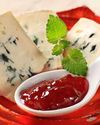
As early as 9000 B.C., people in the regions like Turkey, Iran and Iraq consumed milk from sheep, goat or camel. The fresh milk would spoil quickly after collecting, so it was either consumed fresh or allowed to sour naturally for longer storage periods. Apparently, a taste preference for fermented foods over warm milk developed, and these milks were produced and consumed as yogurt, fresh and ripened cheeses. In fact, some basic principles of cheesemaking can be found in a book by Columnella, a Roman, in 100 B.C. However, cheese has undertaken a long culinary journey ever since.
Cheese’s popularity is attributed to its great taste, the availability of new and different varieties, its convenience and versatility of use, and nutritional value. Taste is a primary factor contributing to consumers’ demand for cheese. More than 300 varieties (e.g., American, Cheddar, Mozzarella, Colby) of cheese are available in various flavours, forms (e.g., chunks, slices, cubes, shredded, grated/crumbled, string/ stick, spreads), and packaging to meet consumers’ needs. Cheese’s nutritional value, especially its calcium and protein content, is identified as an important factor driving consumers’ desire to consume cheese.
Cheese is primarily used for its organoleptic contributions to a food, but it also provides functionality and nutrition to the finished food. Because cheese is an integral part of food products, it is becoming increasingly important for cheese manufacturers to produce their cheese according to the functionalities required for the end use.
هذه القصة مأخوذة من طبعة August - September 2022 من Food & Beverage Business Review.
ابدأ النسخة التجريبية المجانية من Magzter GOLD لمدة 7 أيام للوصول إلى آلاف القصص المتميزة المنسقة وأكثر من 9,000 مجلة وصحيفة.
بالفعل مشترك ? تسجيل الدخول
هذه القصة مأخوذة من طبعة August - September 2022 من Food & Beverage Business Review.
ابدأ النسخة التجريبية المجانية من Magzter GOLD لمدة 7 أيام للوصول إلى آلاف القصص المتميزة المنسقة وأكثر من 9,000 مجلة وصحيفة.
بالفعل مشترك? تسجيل الدخول

California Walnut Crop Mid-Harvest Update
Fall is here, and the California Walnut Commission has provided a mid-harvest update on the 2024 walnut crop.

Consumer Trust in Dietary Supplements Demands Third-Party Certification, Reveals NSF 2024 Report
NSF, a leading public health and safety organization, published its 2024 Supplement Safety Consumer Benchmark report earlier his year, aimed at evaluating consumer preferences and safety concerns regarding dietary supplements.

India Bakery Exhibition 2024: A Grand Success at Chennai Trade Center
The India Bakery Exhibition 2024, held from 20th to 22nd September at the Chennai Trade Center, proved to be a resounding success.

Strong Aromas of Blue Cheese
There is no way you can forget your first view, first smell and first taste of any Blue Cheese.

Debunking Cancer Nutrition Myths
Good nutrition is especially important during the treatment of cancer as it helps to tolerate chemotherapy, radiation and surgery better.

Of the Sheep
The features of a goat’s and that of a sheep’s meat are almost similar and are not readily identifiable.

Indian Ethnic Flavors: A New Wave in Beverage Trends
As the world of beverages continues to evolve, a powerful new trend is emerging, reshaping the landscape of drinks with bold, authentic, and distinctly Indian flavors.

Cloves - Strong & Zesty!
Cloves are flower buds harvested before they flower and their tree belongs to an evergreen variety, aptly named as the clove tree, a part of the Myrtle plant family.

World Chefs Congress
New Congress, Old Gold

Tech Takes Over F&B Industry
Technology impacts every facet of our lives. It is reshaping every industry. Artificial Intelligence (Al) and robotics have had transformative impacts on all industries, including the food & beverage sector. Driven by advancements in robotics and Al, routine and repetitive tasks are automated to increase productivity and, thus, enhance profitability. Ashok Malkani examines the effects of technology and robotics on the restaurant industry in India.